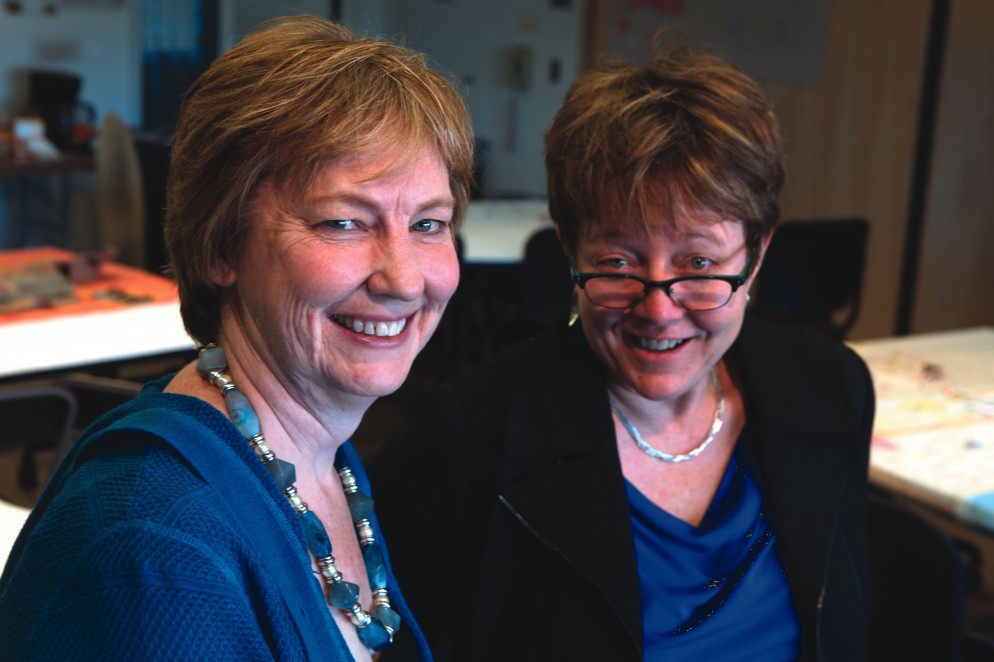“The Colorado College Plan: Building on the Block” describes the Innovation institute as a place where students and faculty will engage in “big picture thinking” and collaborate “to produce real-world answers to complex questions.” The Institute has a proven foundation. The four elements that will form its core — the State of the Rockies Project, Venture Grants, the Big Idea, and the Public Interest Fellowship Program — are venues in which students are already successfully exploring how to realize their ideas. What’s most exciting to us as faculty is the opportunity to teach students how to innovate and, in the process, connect the intellectual and experiential threads that underlie all these ventures.
We’re especially thrilled that the Innovation Institute will provide a space where students become more intentional about the processes of innovation, whether they’re planning travels to China to explore the impact of local culture and legislation on the treatment of animals (Nicole White ’14) or studying “rhizomic urbanism” in post-industrial cityscapes in the Bay Area (Daniel Alvarado ’13). The big myth is that innovation happens magically or comes to us naturally. In fact, recent research tells us that students can actually learn the processes of innovation with the appropriate mentoring. The Innovation Institute will be a place where faculty collaborate actively with students. Current examples of work that could be supported in the Innovation Institute include studying art and commerce in contemporary musical theater (Doron Mitchell ’14 with Professor Ryan Bañagale) or preparing to carry out an anthropological survey in Costa Rica (Fiona Horner ’15 and Maia Wikler ’15 with Professor Esteban Gómez).
Ideas don’t fall out of the sky. When students study innovation, they learn what current research tells us: for example, that creativity is most often a collective, rather than a solitary pursuit, that innovation thrives with the skillful crafting of constraints, and that (as sociologist Ronald Burt argues) we are most “susceptible” to novel ideas when our networks span structural gaps between disciplines.
Students and faculty can work together in the Innovation Institute to make the paths to innovation tangible. While “think tanks” at large Research I universities may focus on faculty research, Colorado College is working on something radical, something novel. We’re endeavoring to create an environment where students, mentored by researching faculty, grow their understanding of innovative processes. They need to develop that second sense that will allow them to identify interesting problems and develop creative solutions. They’ll learn how to build tangible bridges between their liberal arts education and their work in the world, a world that increasingly requires entrepreneurial skills and innovative thinking.
Jane Hilberry, left, is professor of English.
Re Evitt, right, is associate professor of English and associate dean of the college.
